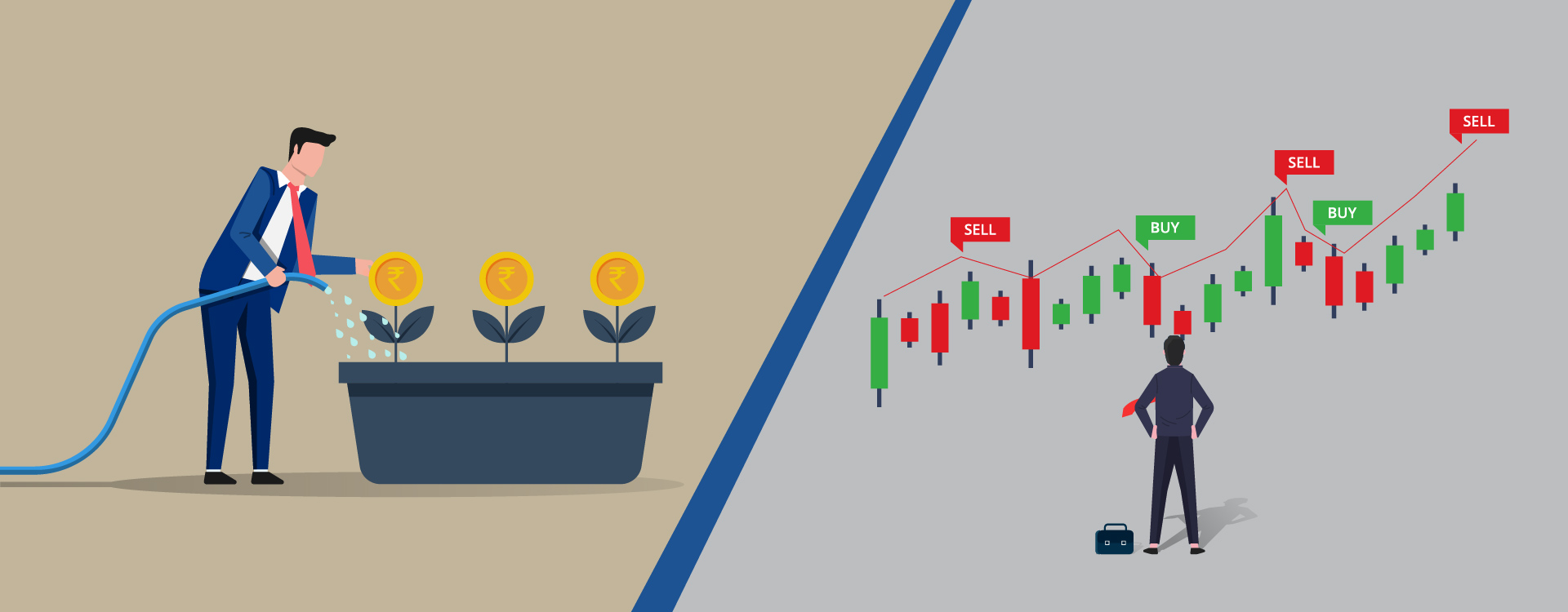There are different types of participants in the financial markets. Some are investors and analysts, some are quick bargainers and traders. But the primary goal of everyone is to make a profit by participating in the market.
Investors have a long-term view of the market, and they generally seek extended financial returns. On the other hand, trading involves short-term strategies that can increase your profits per day, month, or quarter. Investors are more likely to avoid short-term losses, while traders always attempt to make transactions that can help them profit quickly from volatile markets.
‘‘
The main distinction between investing and trading is based on 'time'.
Trading and a trader
Trading involves frequent transactions, such as buying and selling currency pairs, commodities, stocks, or other instruments. The goal of traders is to make the most of their purchases and investments. Traders seek the redemption (return) of their invested money on a frequent basis.
Profit from trading transactions comes from selling a low-priced entity at a higher price in a shorter time. The opposite is also true – trading profits can be made by selling at a higher price and buying to overcome at a lower price (known as “selling short”) to profit in falling markets. This way, the trader profits if the value of the asset falls.
Investing and an investors
The investment objective is always to build wealth over time by purchasing entities like mutual funds, bonds, stocks in portfolios, and other investment vehicles. Investors usually increase their income by compounding or reinvesting their revenue and profits in additional stocks.
Investing typically lasts for years. In the process, investors get benefits such as interest, dividends, and increased stock divides.
Which is better – trading or investing?
Trading can be a handy method to make money fast. But, like gambling, it can also give you many losses. Investments typically yield long-term gains but are less risky as far as losses are concerned. If you have a risk appetite, you can delve into trading and take chances, either for big profits or substantial losses. Otherwise, investments are your go-to financial avenue.
Risks and outcomes of each
Traders closely watch the changes in market share. If the share price rises, a trader sells shares for a relatively instantaneous profit. In short, trading is the skill of timing the market, whereas investment is the art of building wealth with great interest and profit over the years and maintaining excellent market share.
Due to the all-or-nothing character of trading and inherent risks associated with it, many investors often avoid it completely. However, others looking to diversify investments divulge some of their open repositories towards trading and the surplus towards long-term investing.
If you possess some risk-taking capability, trading with a portion of your money could lead to profits. If reducing exposure to volatility and risk is your primary goal, then you should stick to long-term investing.
The financial takeaway
While trading can be a direct leap to earn quick cash, it has many potential risks. Investing means smaller short-term wins but also fewer severe losses. But if you are accumulating for a monetary goal that you hope to reach by a specific time, a slow-and-steady investing approach is usually best.




